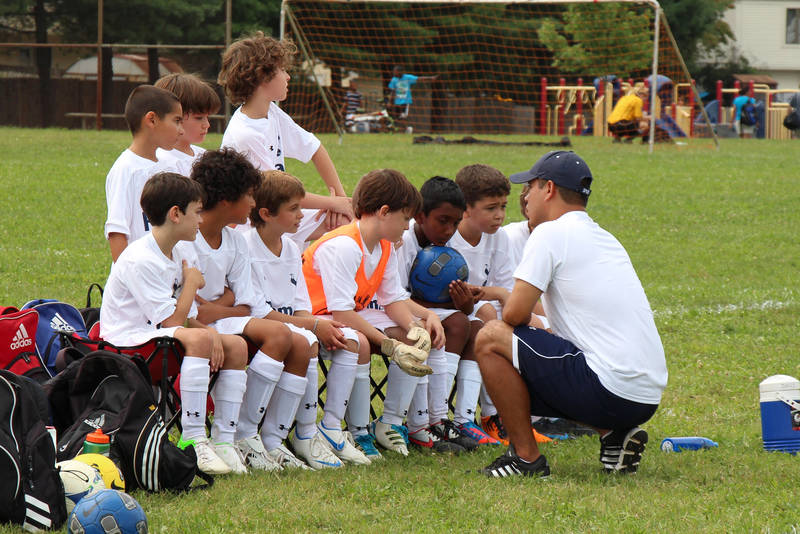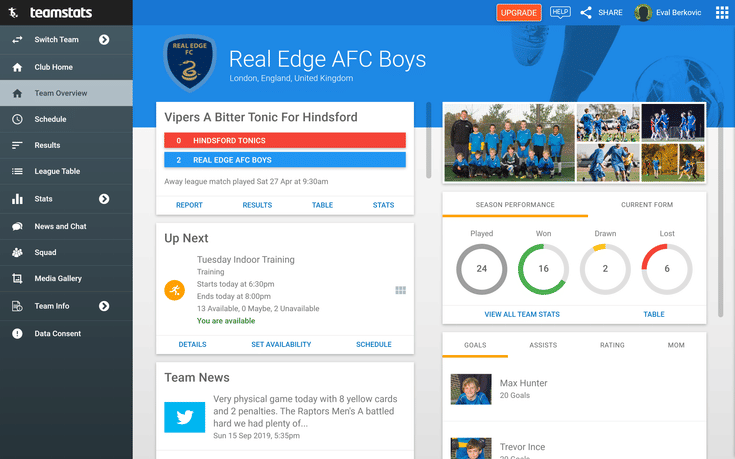U12 football represents a crucial developmental stage for young players aged 11-12, where they transition from basic skills to more complex tactical understanding. At this age, children begin to comprehend the nuances of gameplay while strengthening their technical abilities through structured training and competitive matches. Proper U12 football coaching focuses on ball control, attacking strategies, and passing fundamentals, creating a foundation that will serve players throughout their football journey.
This developmental phase emphasises being part of a team, with players learning their roles within various formations and game situations. Youth club football at this level introduces more sophisticated concepts while still maintaining an environment where enjoyment and participation remain central. Coaches across the UK design specific drills that enhance these abilities while keeping sessions engaging and age-appropriate.
The beautiful game at U12 level strikes a perfect balance between structured learning and creative expression. While the sport is known as soccer in some regions, in the UK it represents a grassroots passion that builds community connections and develops well-rounded young athletes. With proper guidance, these young footballers develop not only technical skills but also important life lessons about teamwork, discipline and resilience.
Understanding U12 Football
U12 football represents a crucial developmental stage where young players begin to grasp tactical concepts while refining their technical abilities. Players at this age are increasingly capable of understanding positional play and developing their unique style on the pitch.
Age Group Dynamics
U12 football typically involves children aged 10-11 years who compete in 9v9 format matches. This transitional format bridges the gap between small-sided games and the full 11-a-side experience they'll encounter in later years.
At this age, significant physical and cognitive differences emerge among players based on natural development rates. Some children may experience growth spurts while others develop later, creating varied physical capabilities within the same team.
Players become more socially aware at this stage, developing stronger team connections and understanding their role within the group. The 2-3-3 formation is commonly used at U12 level, helping children learn positional responsibilities while maintaining tactical simplicity.
The competitive element naturally increases at this age, though the primary focus should remain on development rather than results.
Skill Development and Coaching
U12 players should be exposed to all six surfaces of the foot for ball manipulation—inside, outside, instep, sole, toe and heel—to build comprehensive technical foundations. Training sessions should emphasise plenty of ball contacts through game-like exercises and small-sided games.
Player-centred coaching approaches work particularly well at this age, recognising and addressing individual needs while maintaining team cohesion. Coaches should balance technical development with introducing basic tactical concepts.
Training should incorporate dynamic exercises that combine multiple skills simultaneously. For example, dribbling activities that end with a pass or shot better replicate match situations than isolated drills.
Decision-making abilities develop rapidly during this stage, and coaches should create scenarios that encourage players to solve problems independently. This age group represents the perfect opportunity to balance structured learning with creative freedom.
In some regions, including parts of the UK, this age group may still be referred to as soccer U12s, though football remains the predominant term.
Season and Competitions
The U12 football calendar revolves around structured competitions designed to develop young players while maintaining appropriate competitive balance. These competitions typically follow school-year patterns, with most leagues running from September through May.
League Structure and Division
U12 football leagues in the UK are typically organised into divisions based on team ability and geographical location. The primary season usually spans autumn through spring, with matches scheduled on weekend mornings. Most leagues implement a promotion and relegation system, allowing teams to find their appropriate competitive level.
Teams generally play between 20-30 league matches per season, with points awarded for wins (3) and draws (1). Many regions divide competitions into autumn and spring phases, with potential restructuring between phases to ensure balanced competition.
League administrators carefully monitor match results to maintain competitive balance and prevent mismatches. Some areas employ "power rankings" or rolling assessments to adjust divisions mid-season if necessary.
Cup Tournaments and Special Events
Beyond regular league play, U12 teams participate in various cup competitions and tournaments throughout the season. County FA cups represent prestigious knockout tournaments where teams compete against others from different leagues within their region.
Holiday tournaments provide concentrated football experiences during school breaks, with teams often playing multiple matches in a single day. These events frequently attract teams from different regions, exposing players to diverse playing styles.
Many clubs organise pre-season tournaments in August to prepare for the upcoming campaign. Additionally, end-of-season festivals celebrate the year's achievements with less emphasis on results.
International tournaments are increasingly popular, with UK teams travelling to European destinations for competitive experiences. These tournaments offer valuable cultural exchange alongside football development—a unique aspect that traditional "soccer" tournaments in North America cannot replicate.
Online Presence and Privacy
Managing an online presence for U12 football teams requires careful consideration of privacy concerns, especially when dealing with young players. Protecting personal information whilst still promoting team activities demands a balanced approach that respects both safeguarding requirements and the digital landscape.
Team Websites and Social Media
Football clubs with U12 teams should establish clear policies regarding online content and player privacy. Team websites should feature only limited personal information about young players, ideally using only first names when highlighting achievements.
Consider implementing a parental consent system before posting any photos or videos of matches. Many clubs now use private, password-protected areas of their websites to share team photos and match reports with families only.
Social media presents both opportunities and risks. Platforms like Instagram and Facebook can build community spirit, but privacy settings must be carefully configured. Some clubs create closed groups that only approved parents and coaches can access.
Remember that inappropriate sharing of children's images could violate safeguarding protocols. Regular training for team managers and administrators on digital safeguarding is essential.
Show less











